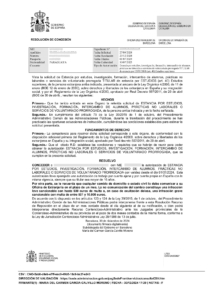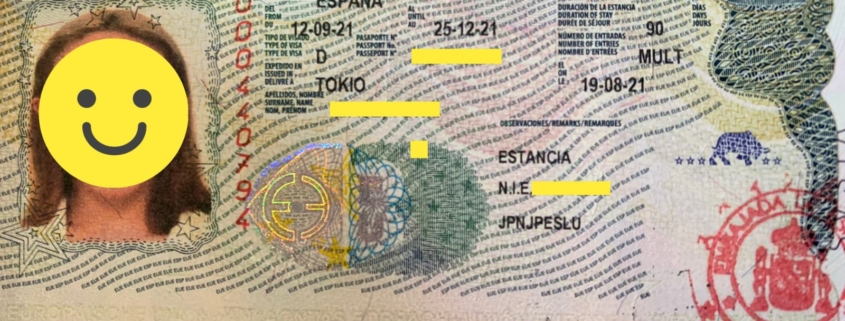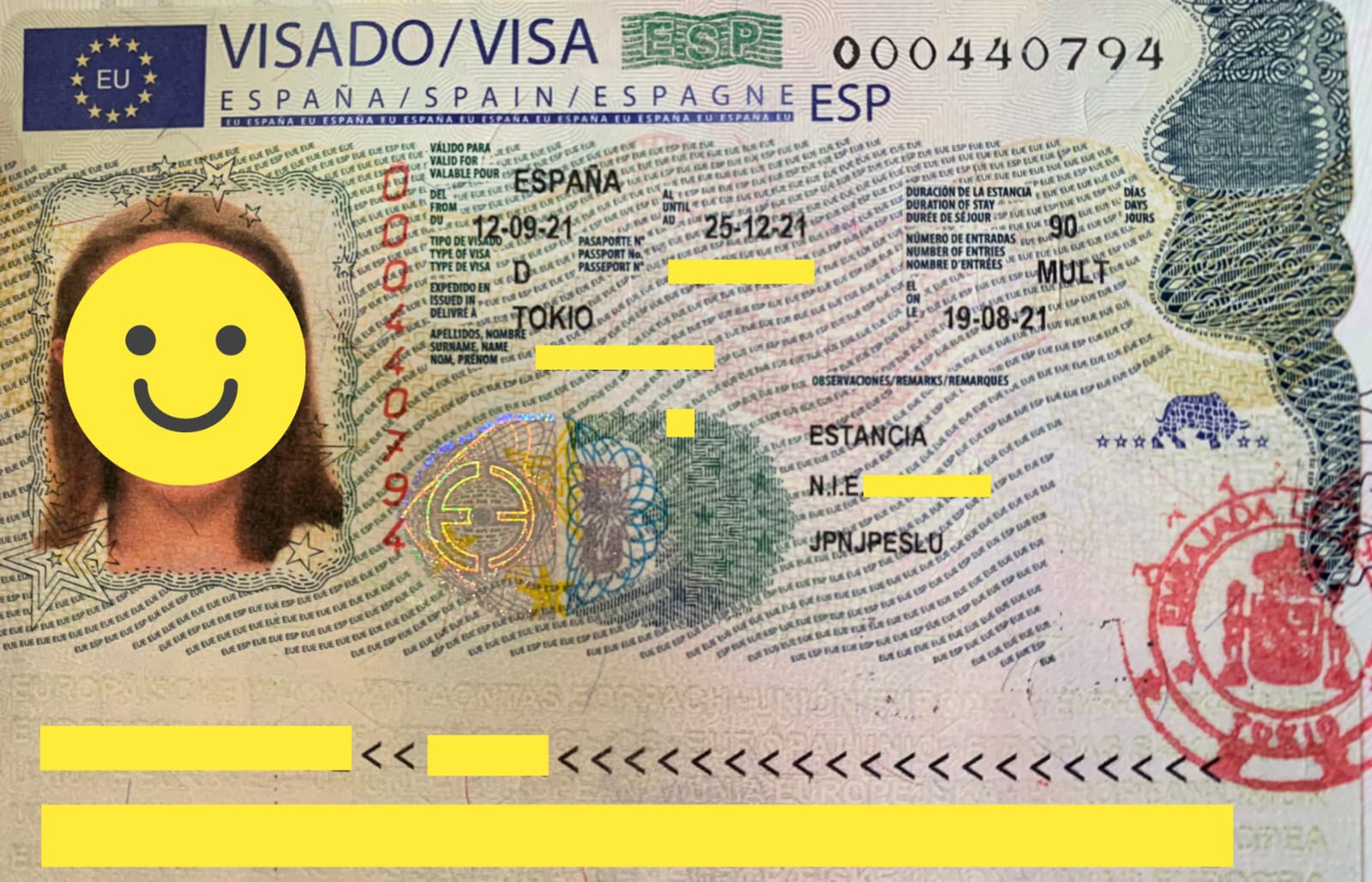How Can a Non-EU Citizen Stay in Spain for More Than 90 Days?
If you’re a non-EU citizen planning to come to Spain for a long period, this article will be useful for you.
First things first: all non-EU citizens need a visa or a residence permit to stay in Spain for more than 90 days (long stay – larga estancia).
Stay (Estancia) vs. Residence (Residencia): What’s the Difference?
To know exactly what to do in your case, it is important to understand the difference between estancia (stay) and residencia (residence).
- If you are coming to Spain for studies or volunteer work and for now you are not planning to live or work, you will need a long-stay visa (visado de estancia).
- If you are planning to live and/or work in Spain (to start a new life in Spain) and want access to social benefits (which requires being registered with Social Security), you will need to apply for a residence permit (autorización de residencia).
How to Apply for a Long-Stay Visa (Type D Visa)
If you need a long-stay visa (Type D Visa), you usually have to apply at the Spanish consulate in your home country, except for certain cases like the student visa (for which you can apply form Spain). Once approved, the visa will be stamped in your passport.
Your visa will include your personal details, and in most cases, your NIE number (Número de Identidad de Extranjero) will be written on the lower right side.
Please, take into account that you must enter Spain within the validity period of your visa (not before and not after) to activate your staying permit. When you arrive in the Schengen area, make sure your passport is stamped at the border. This stamp is essential to apply for your TIE card (Tarjeta de Identidad de Extranjero).
My Visa is Valid for 90 Days, but My Stay is Longer. What Now?
It’s common for stay visas to be valid for just 90 days, even if your actual stay is longer.
For example, if you’re coming to Barcelona to study for 9 months, your visa will be stamped in your passport, but it will only show 90 days of validity. Don’t panic—this is totally normal!
Once you’re in Spain, you’ll need to apply for your TIE card (residence card). This extends your legal stay until the end of your studies. You’ll notice that the expiration date on your TIE card closely matches the end of your course, which corresponds to your authorized stay. You also have to know that, once your TIE expires, you are allowed to stay as a tourist in Spain for 90 days more.
To get your TIE card, you must book an appointment at the immigration office (Oficina de Extranjería) of the Policía Nacional in the province where you’ll be living. At the appointment, they’ll take your fingerprints, and your TIE card will be ready in about 30 days.
Applying for a Residence Permit (Autorización de Residencia)
Residence permits are usually applied for directly in Spain through the Subdelegación del Gobierno, either online or in person. These permits are issued as A4 documents, which include:
- The resolution of your residence application
- Your personal details
- Your NIE number
- The validity period of your residence
 Processing times vary depending on the type of permit. Some permits as the Family Member of an EU Citizen permit (familiar de comunitario) can take up to 6 months or more to be processed. In this case, you can legally stay in Spain until you receive any answer although your tourist visa o previous residence/stay permit has expired.
Processing times vary depending on the type of permit. Some permits as the Family Member of an EU Citizen permit (familiar de comunitario) can take up to 6 months or more to be processed. In this case, you can legally stay in Spain until you receive any answer although your tourist visa o previous residence/stay permit has expired.
Be aware that it is possible that the immigration office requires any additional documentation. If so, you will be notified. If you receive a requirement notice from the immigration office, you usually have 10 business days to submit the requested documents. The deadline starts the day after the official notification. Failing to submit the documents on time may result in your application being denied or archived. In some cases, you can request an extension, but approval is not guaranteed.
Once your residence is approved, you’ll receive an A4-sized document containing the details mentioned above. The last step will be getting your TIE card. For that you must book an appointment at the immigration office (Oficina de Extranjería) of the Policía Nacional in the province where you’ll be living. At the appointment, they’ll take your fingerprints, and your TIE card will be ready in about 30 days.




